Kumbalgarh – Fortress and Hike
24. + 25. February 2019
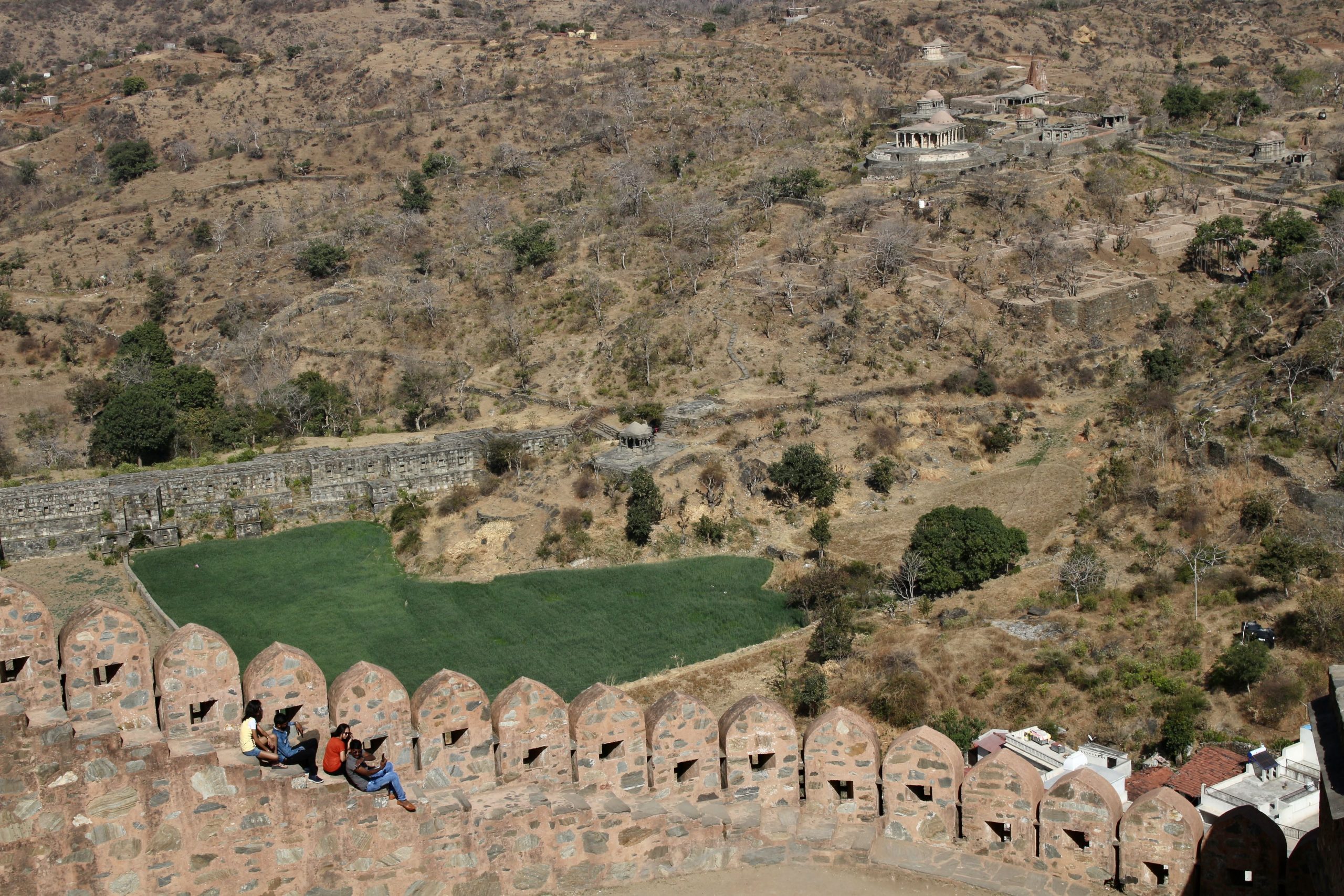
In the middle of the Aravalli Mountains is Kumbalgarh, a fortress with a 36 km long wall (the second longest in the world after the Chinese wall) on a ridge around 1,000 metres high. Inside this fortress were a princely palace, 360 temples, residential buildings and many people.
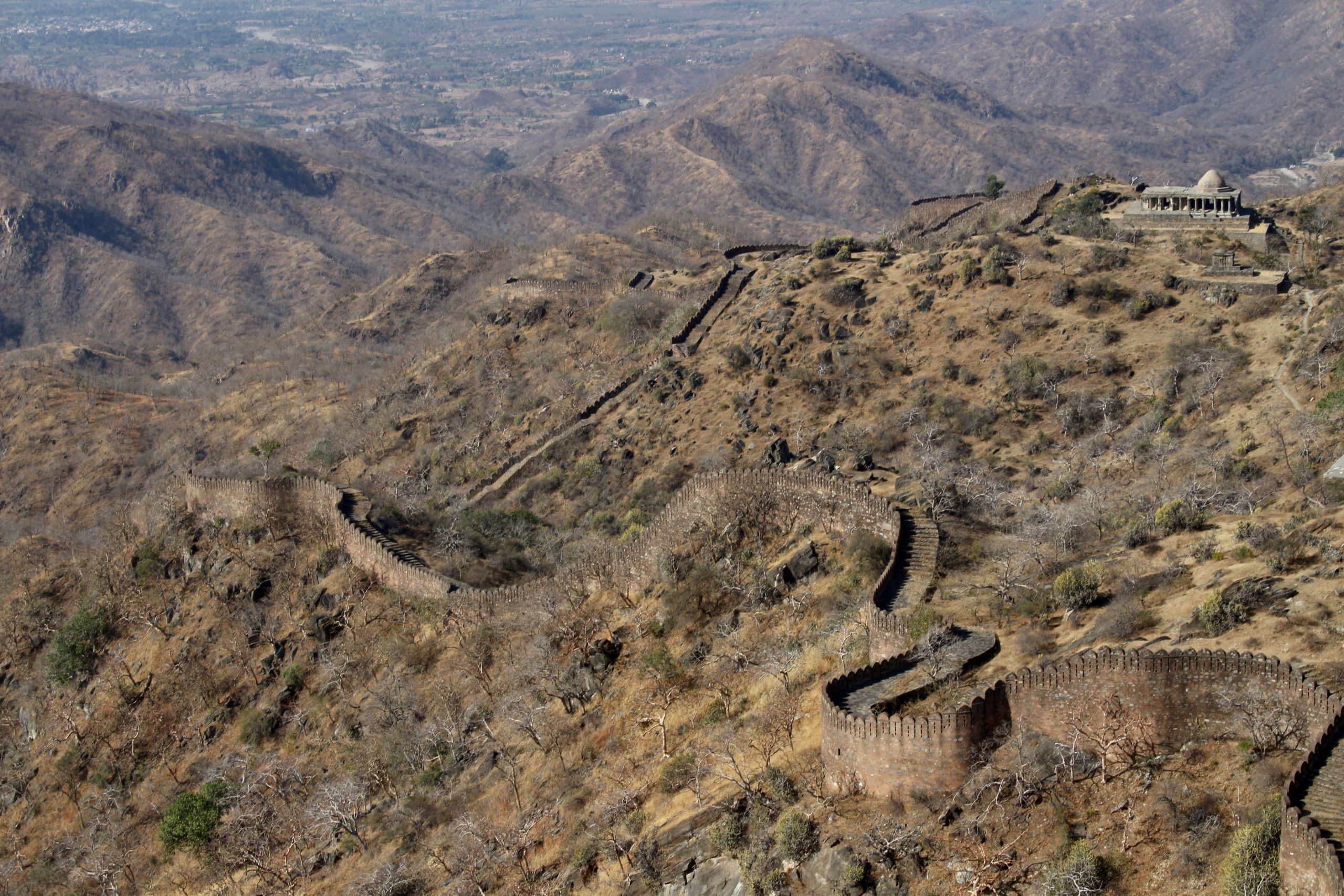 wall
wall
Back then, it was easy to defend against enemies (Islam and other Rajput states wanted to conquer). Only if the siege lasted too long did the water inside eventually run out – but this only happened once.
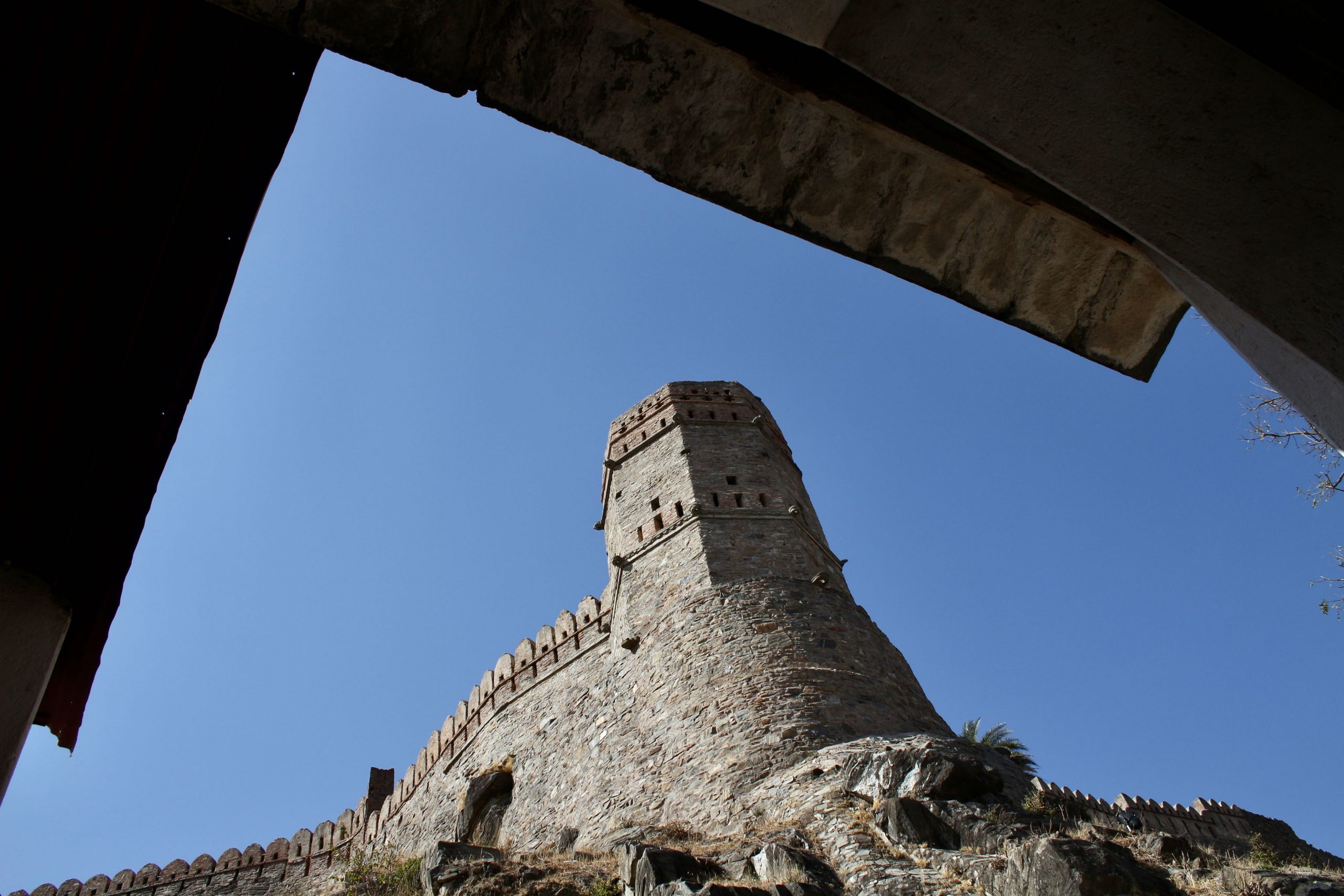 Tower
Tower
Hordes of tourists invade today. But because everything is so big, it gets a bit lost. The majority are Indian, but you also come across some rather elderly Western tour groups. And then there are actually a few remaining inhabitants who do a bit of farming.
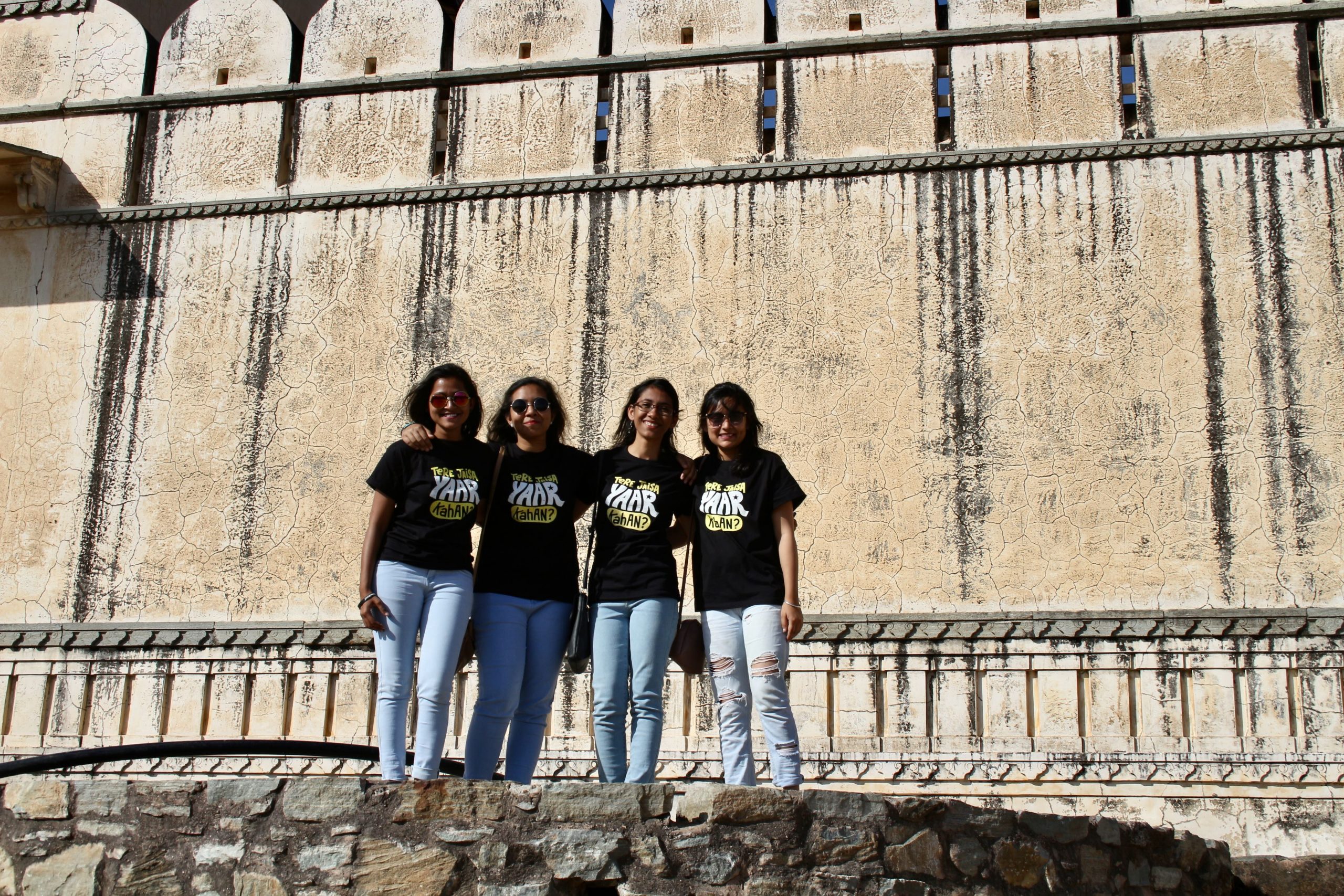 visiters
visiters
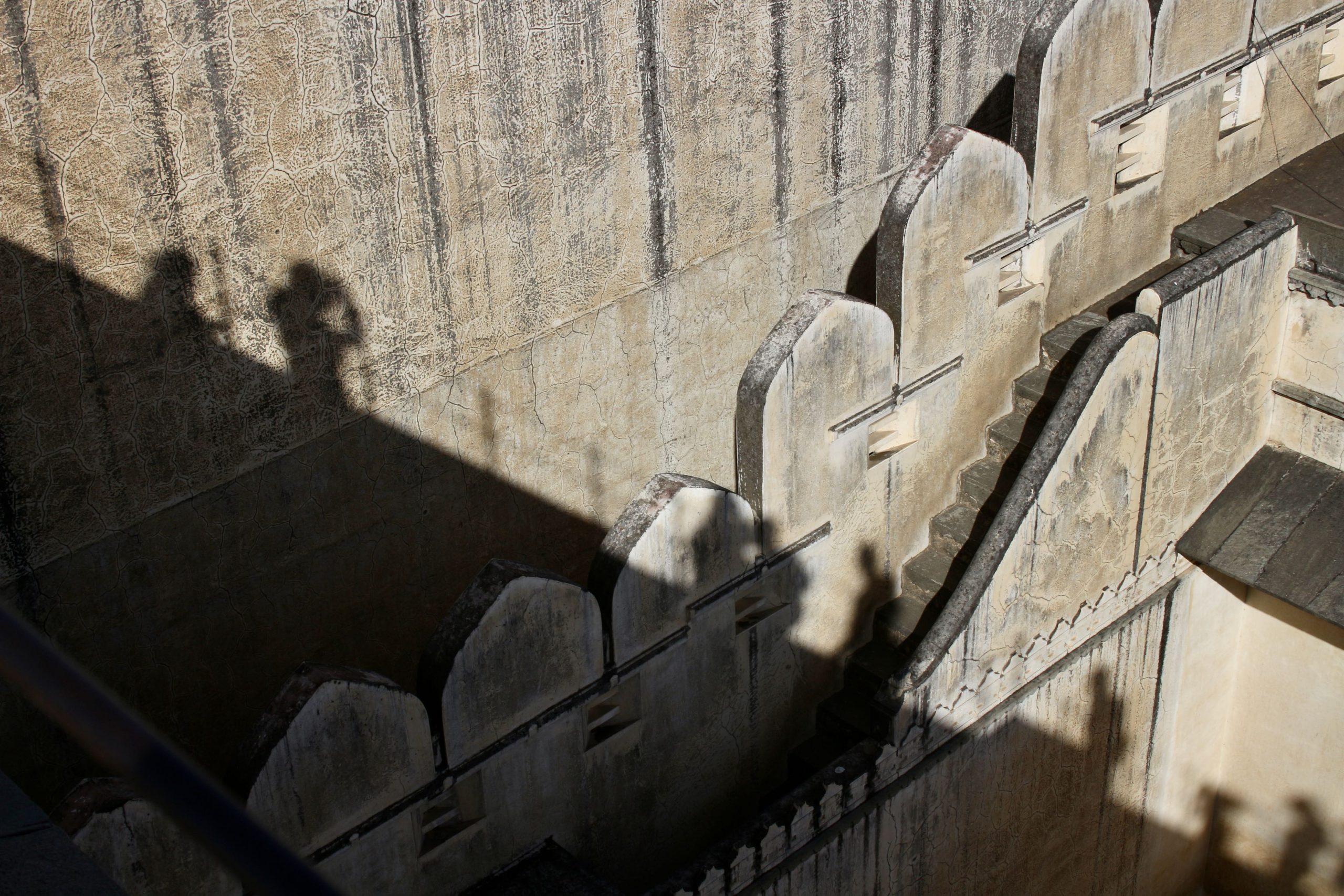 shadows
shadows
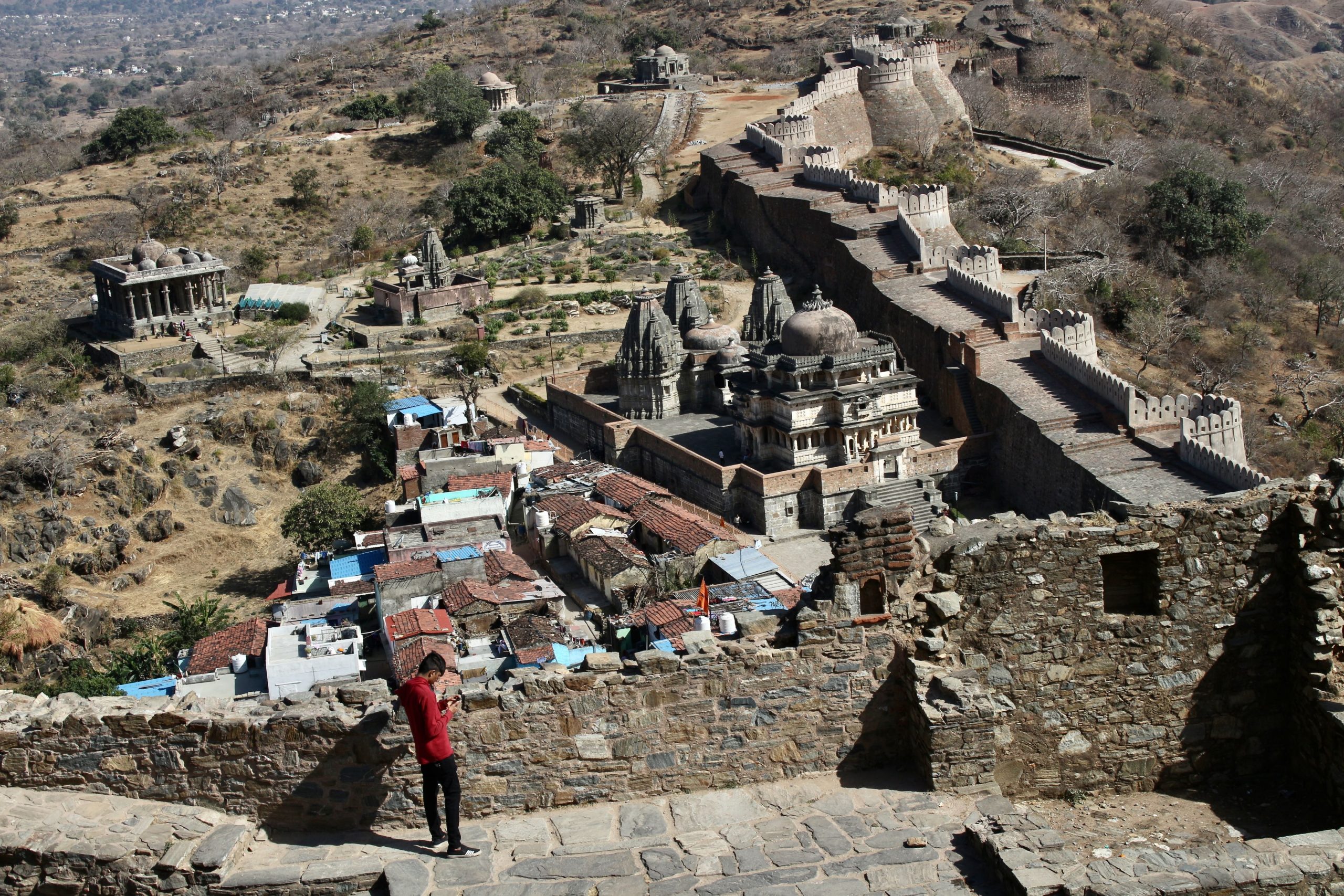 living quarter
living quarter
There is a nature park directly away from the fort. You can hike down through it. Which we did, of course. The path is 14 kilometres long and, if you’re lucky, you might spot some animals. I wasn’t so lucky, but I’m also a bit “blind” when it comes to spotting animals.
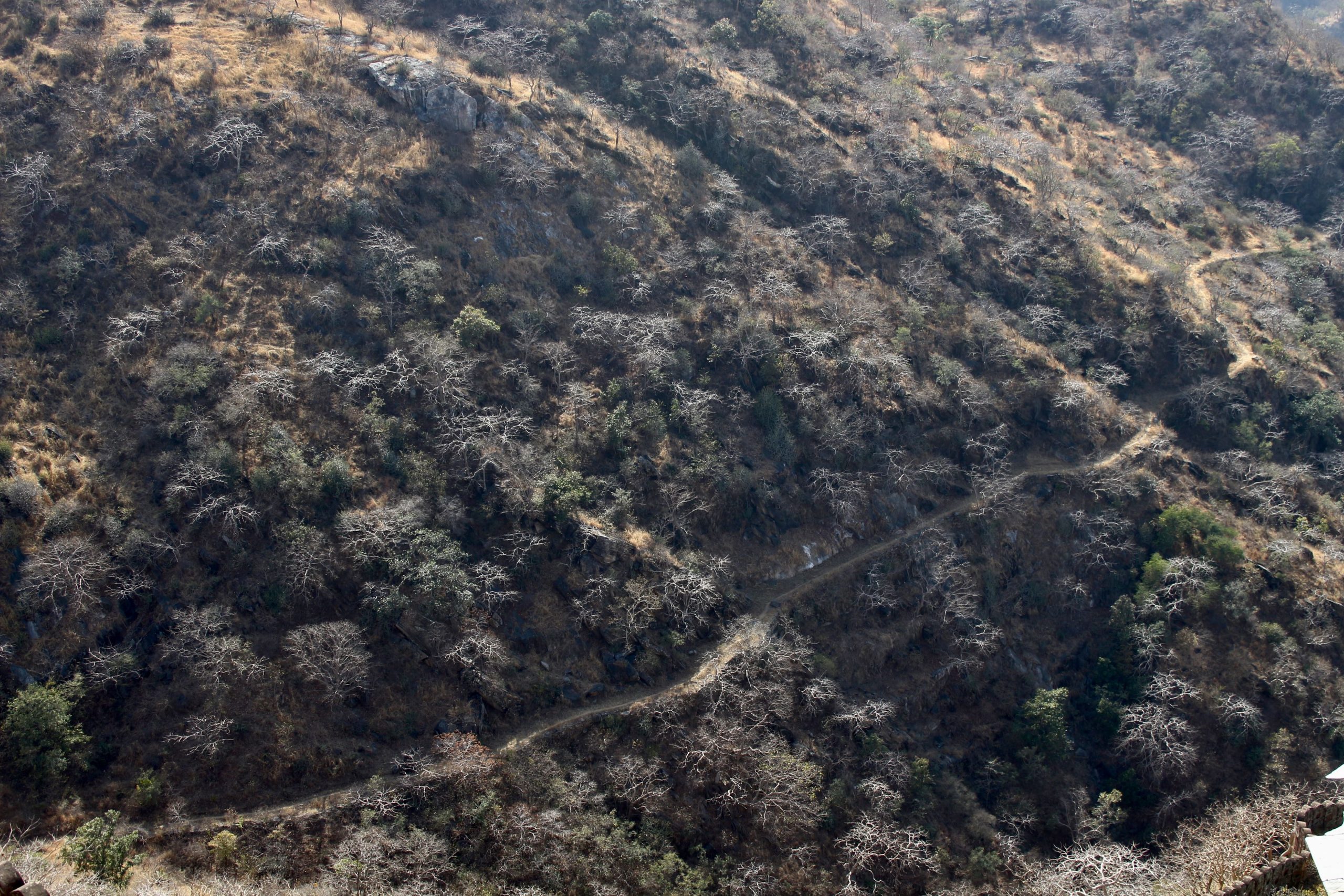 Path
Path
I usually only see paw prints. I probably look down too often.
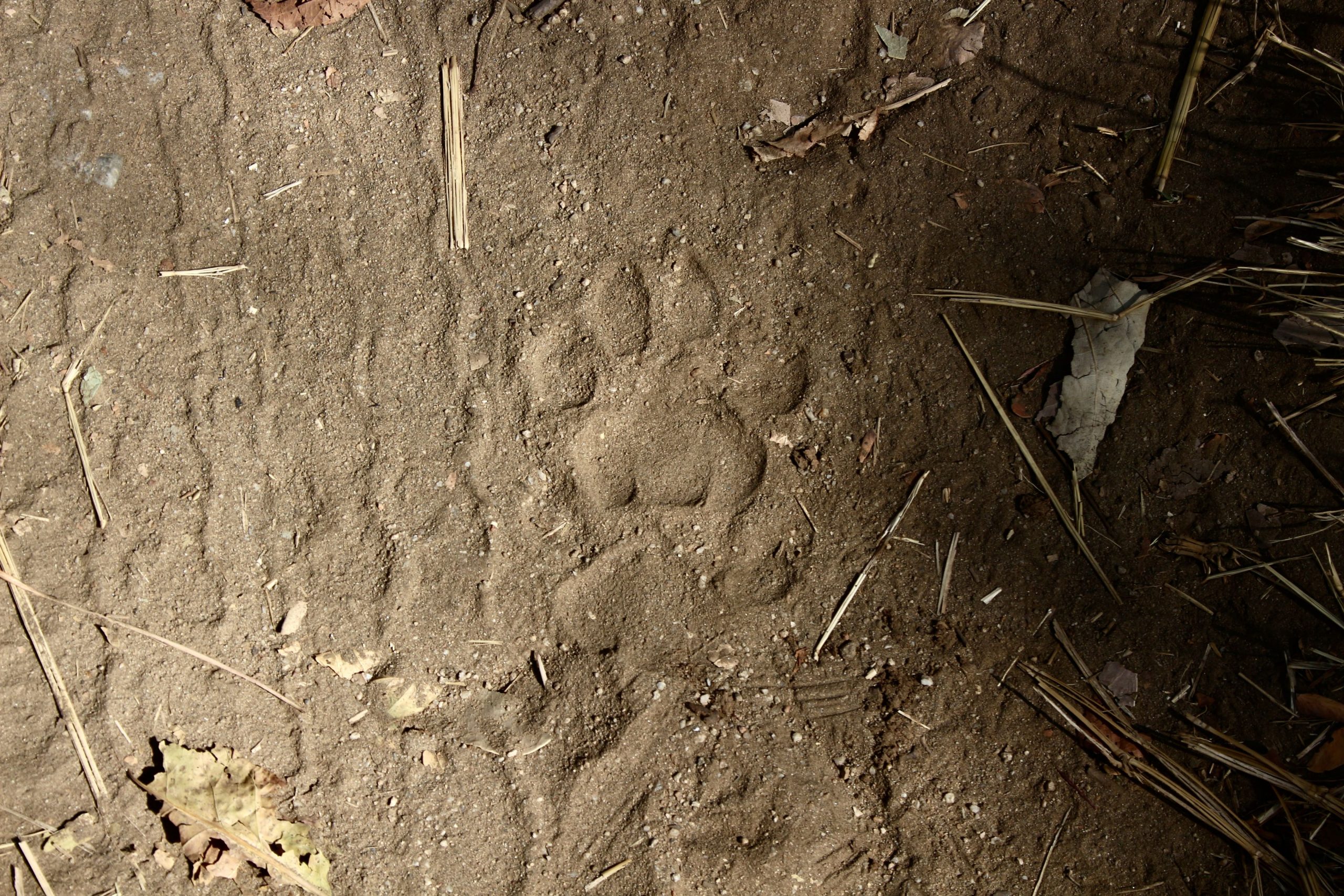 Leopard?
Leopard?
But there were also quite a few plants. In February, however, it was rather dry. In the monsoon it should be bright green.
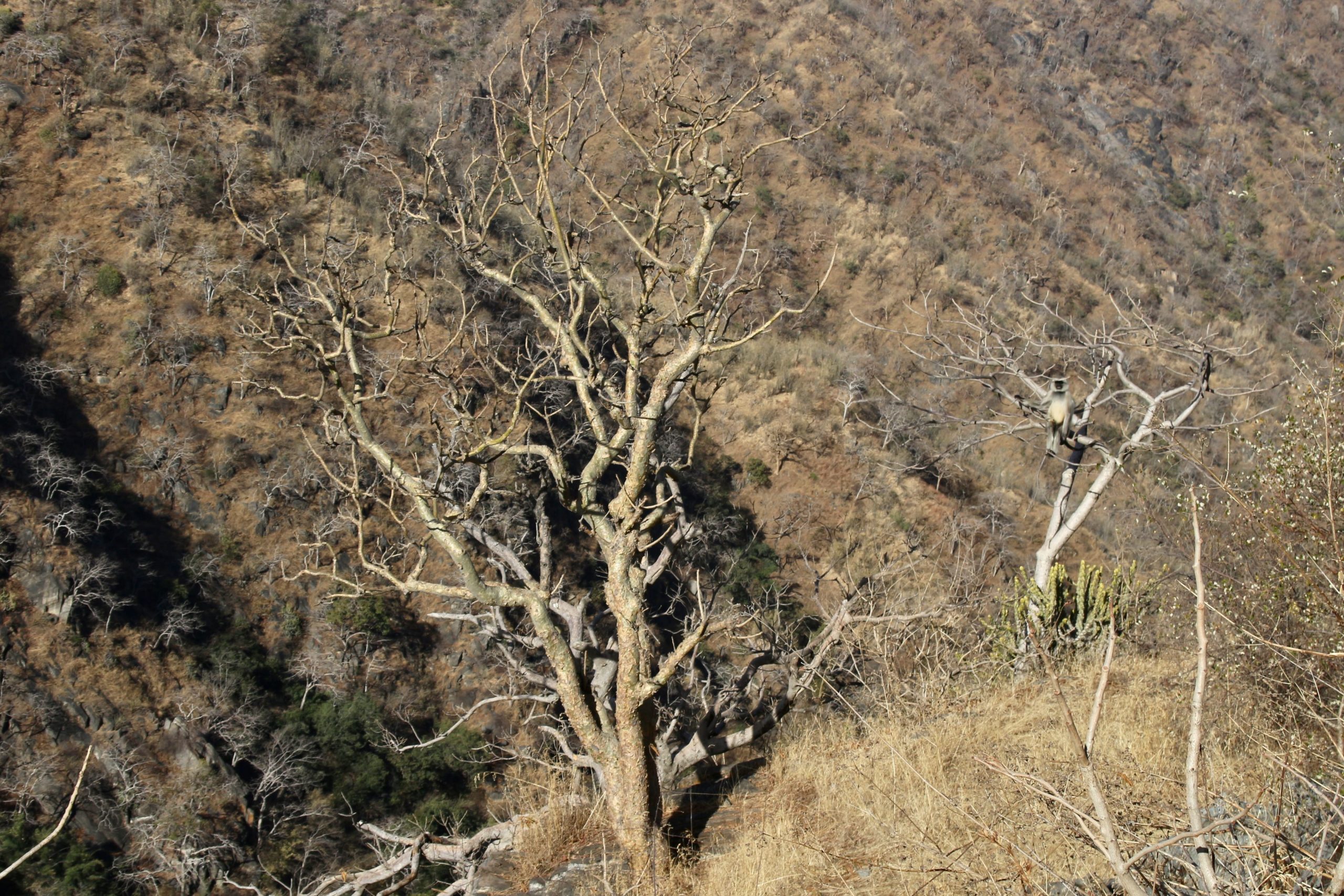 leafless tree
leafless tree
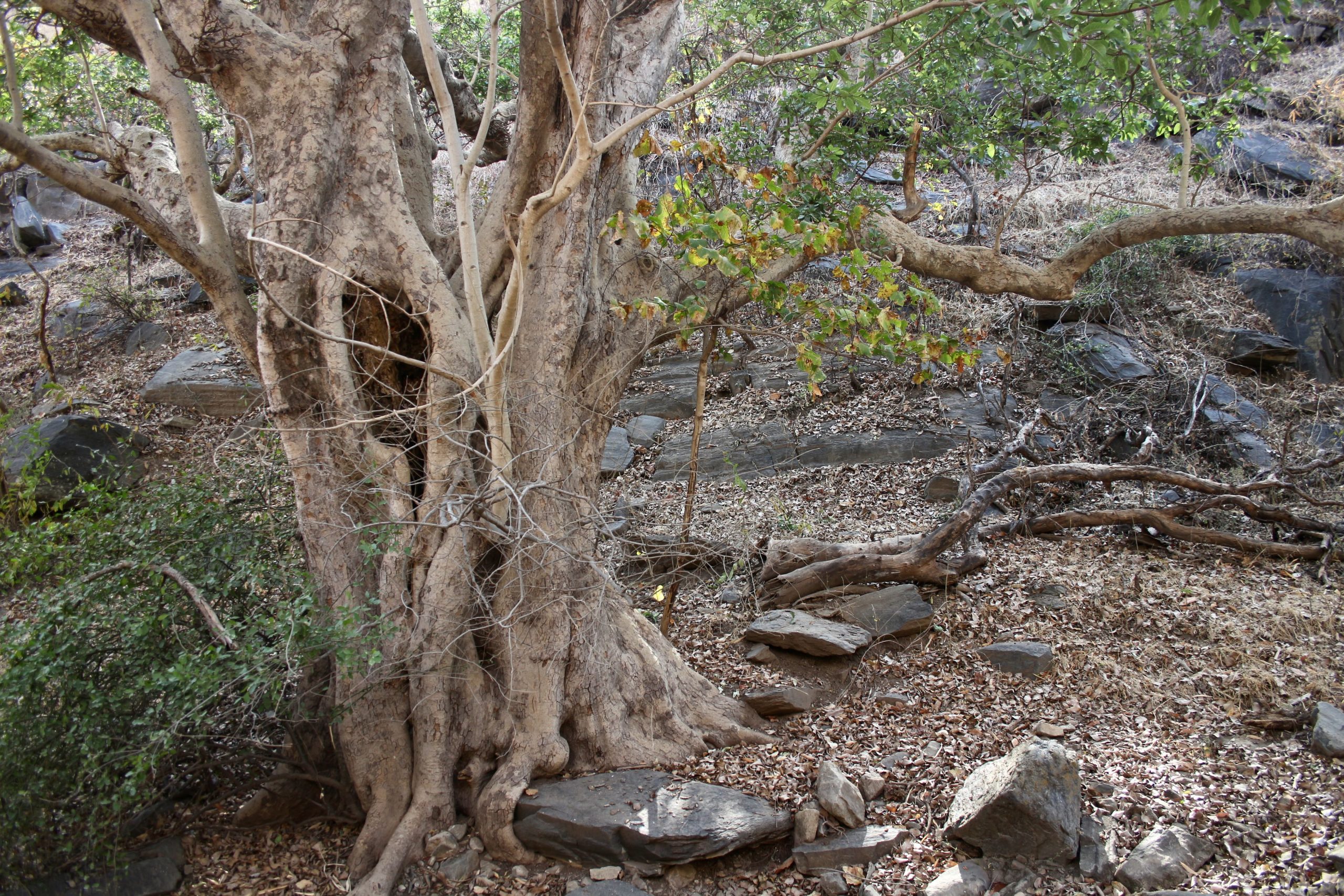 beautiful tree trunk
beautiful tree trunk
The water pools for the animals were still well filled and reflected the vegetation so beautifully.
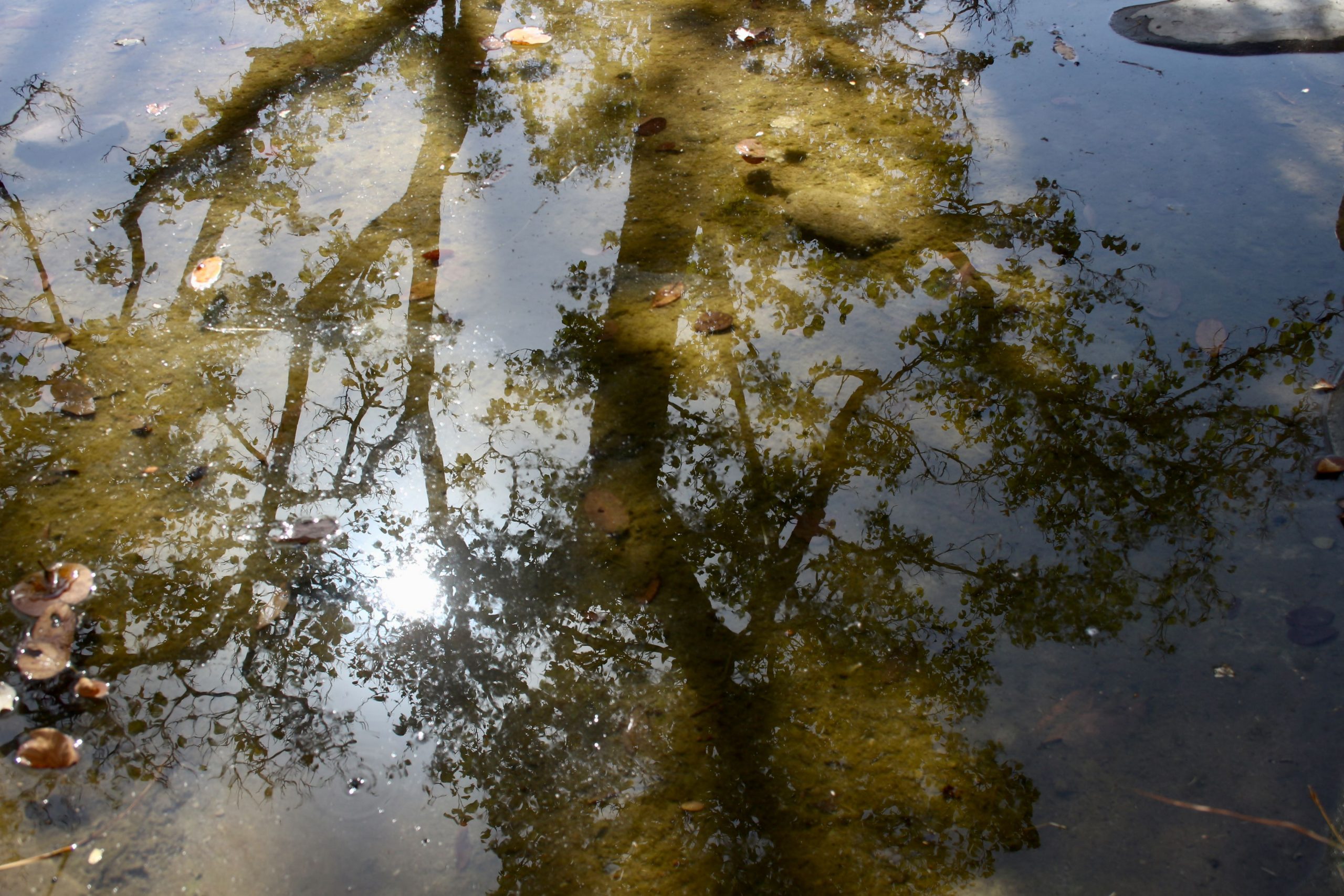 reflection
reflection
I didn’t hike alone. We had two guides, one of whom was specifically for the park on the edge of which he lived and we also visited him at home. I knew him from about 7 years ago, when I had done the tour once before.
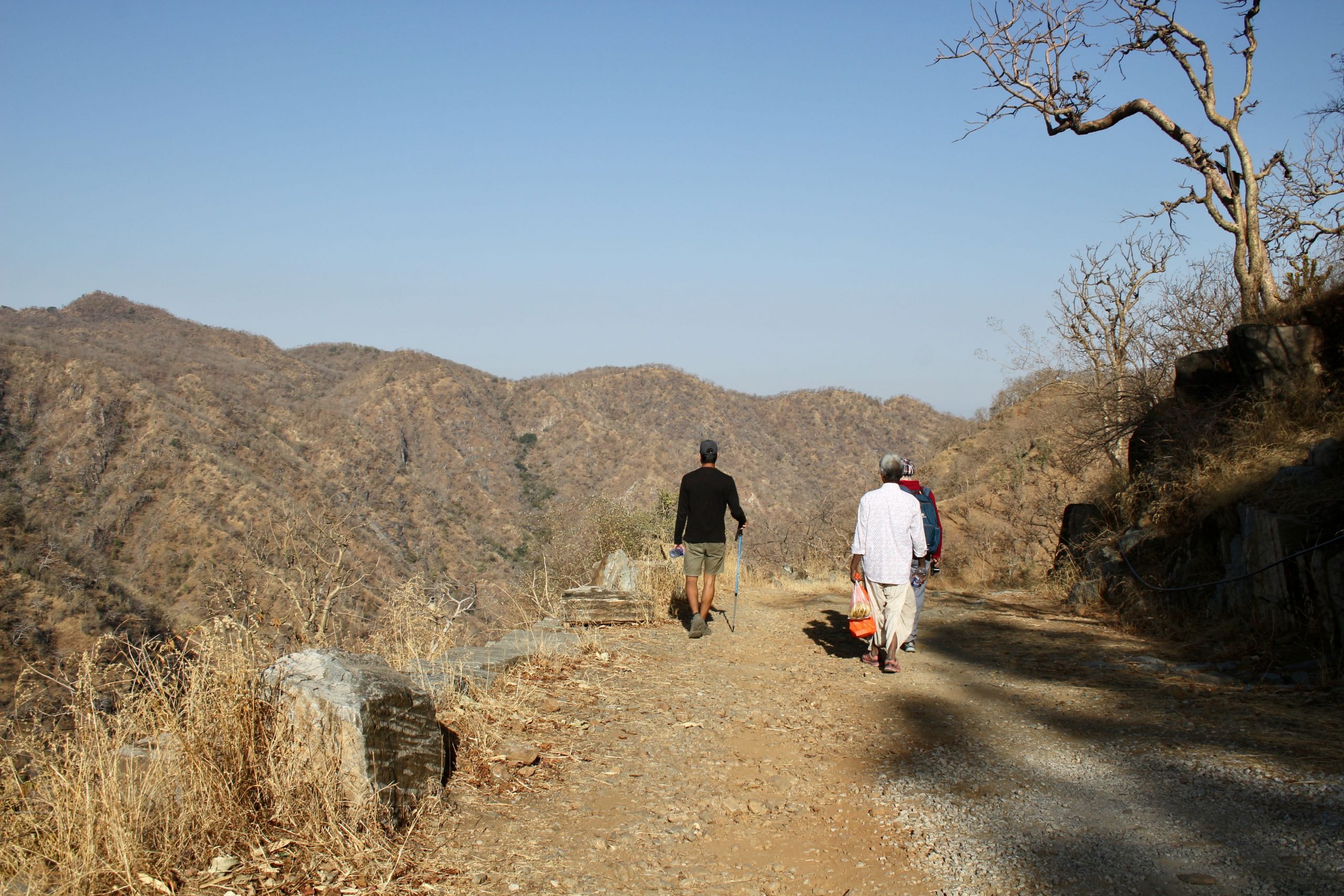 hikers
hikers
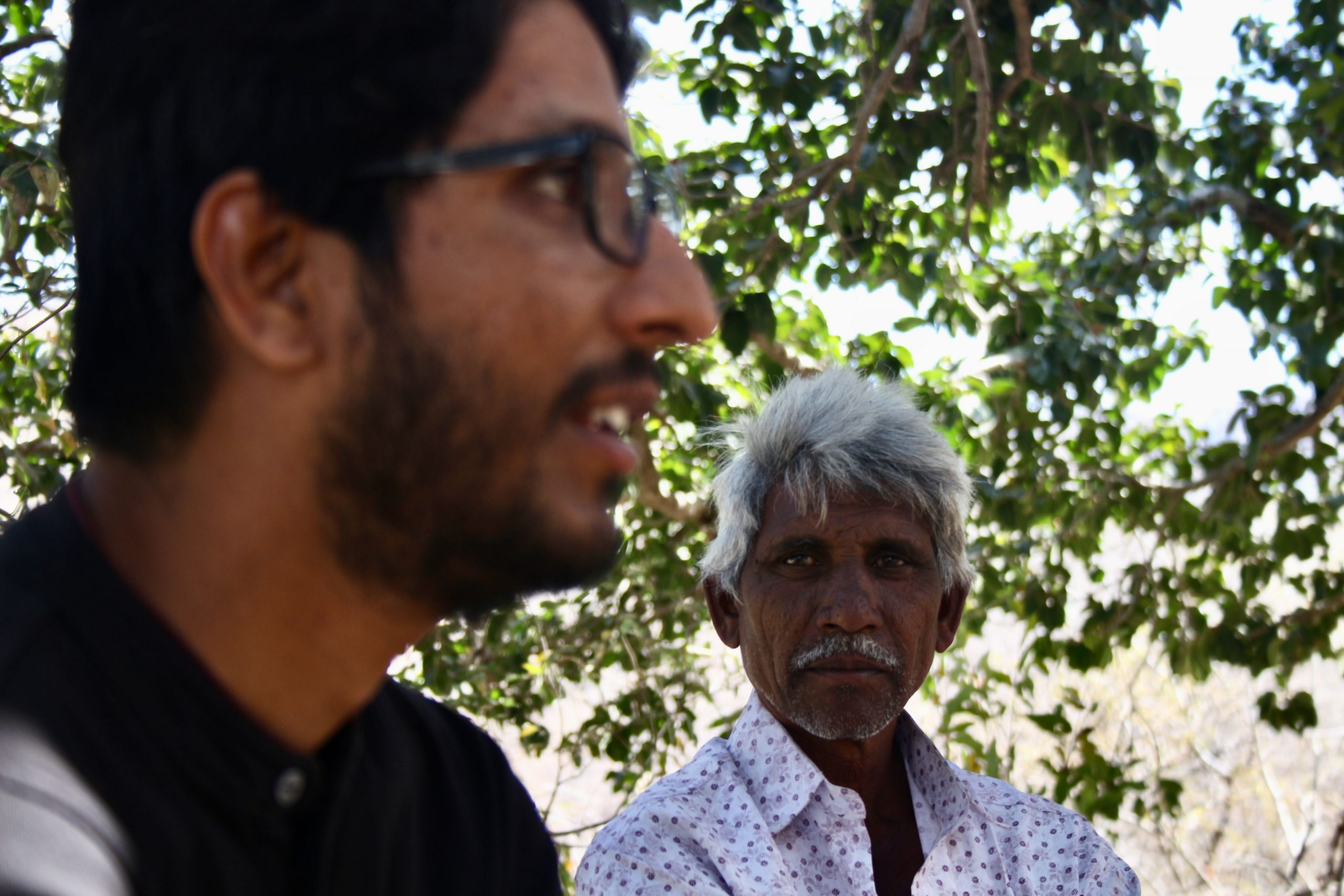 Abi and Uda
Abi and Uda
In addition to his farming and livestock farming, Uda was often employed as a guide and was thus able to earn some money. He used this to build a new house for his large family.
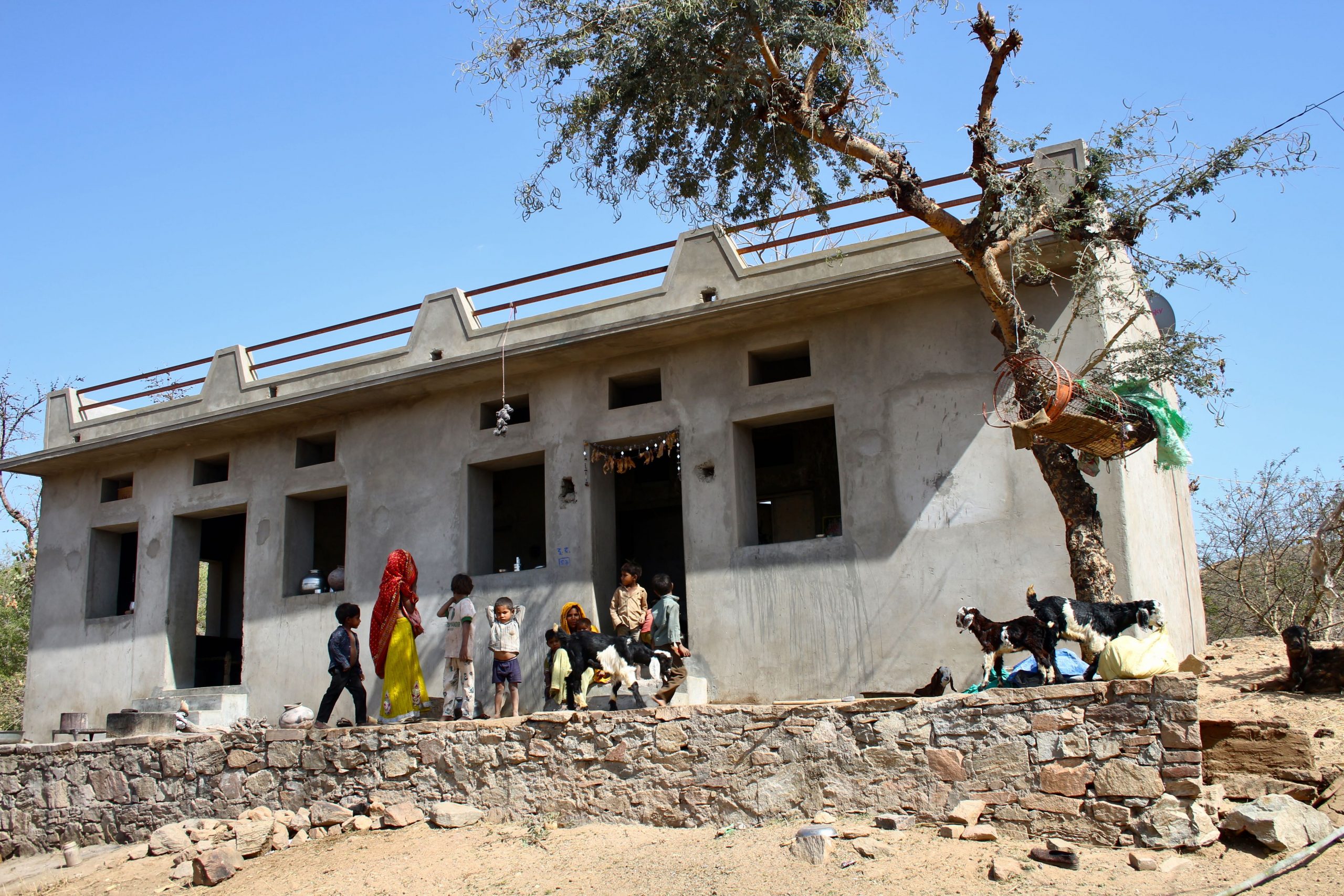 House
House
There we were given tea to drink and saw lots of children.
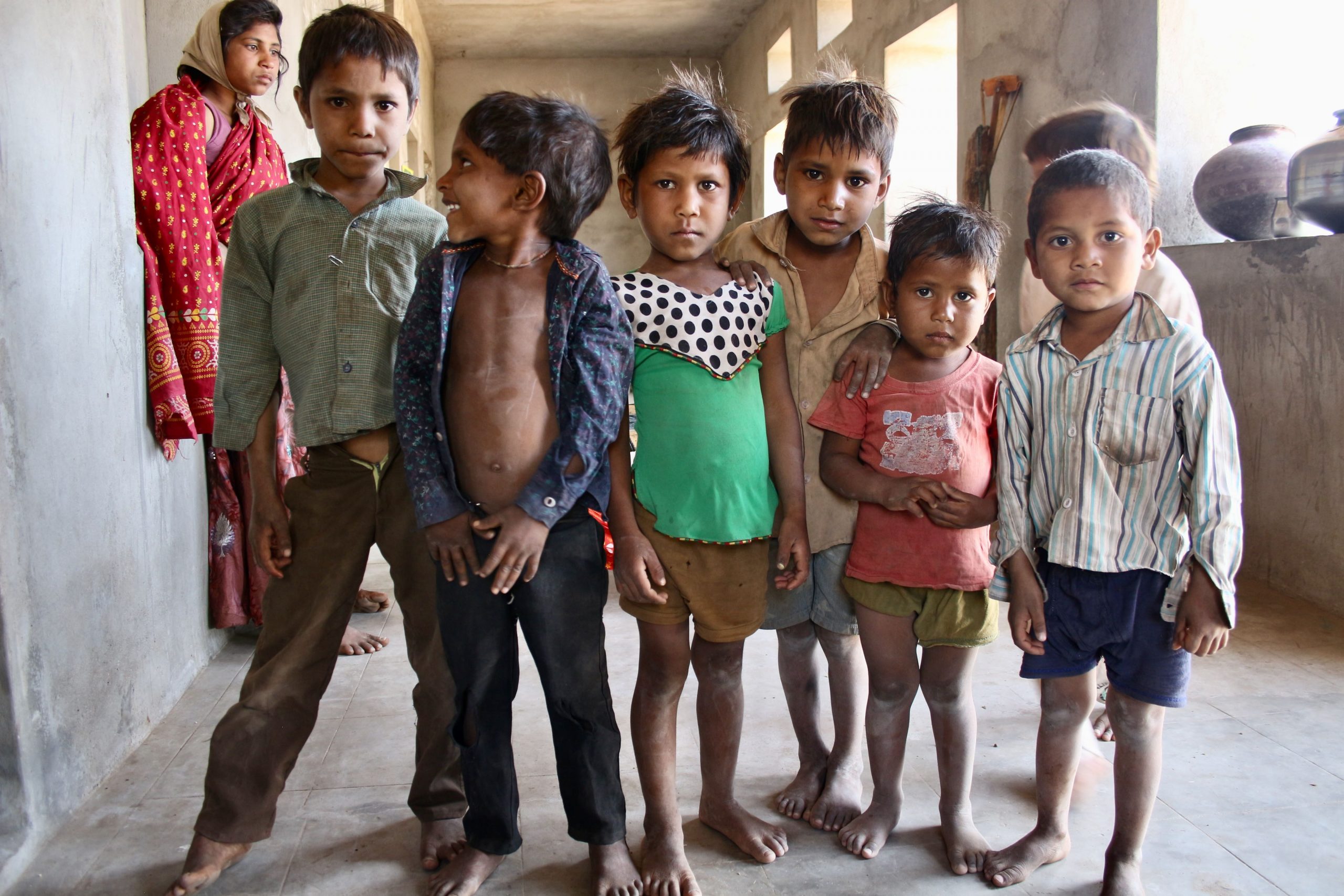 children
children
But my favourite photo of the day is probably the one of our permanent guide Abi and a goat.
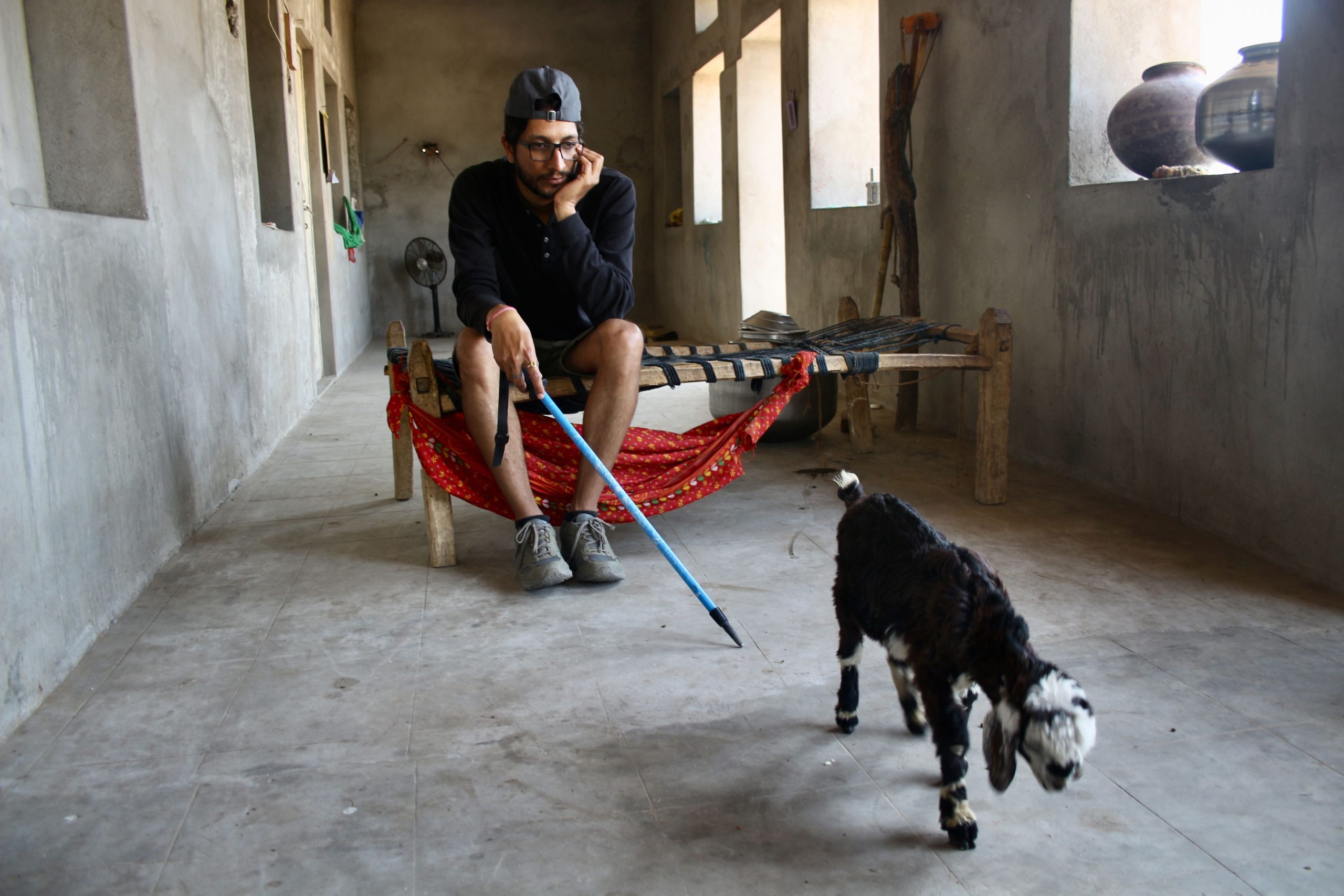 resting
resting
